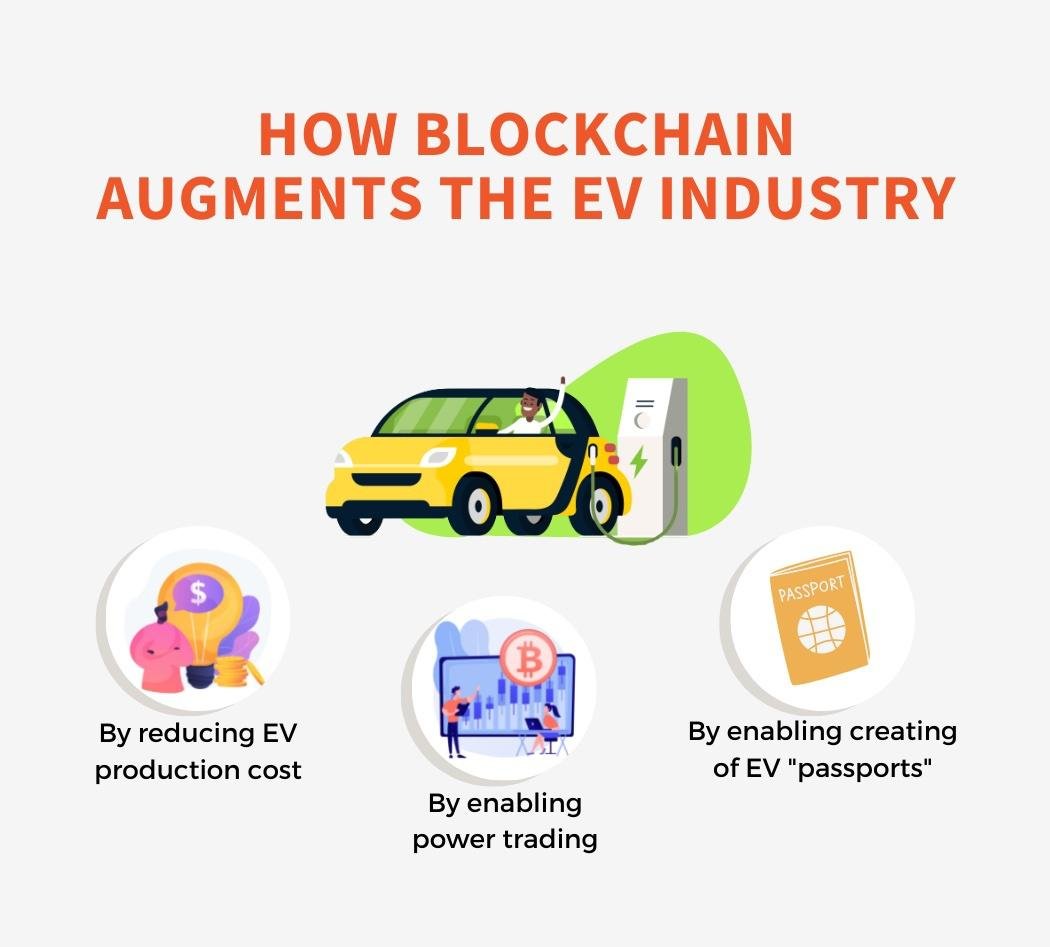Welcome to a fascinating exploration of the role of blockchain technology in electric vehicle ecosystems! Blockchain technology, known for its secure and transparent system of recording transactions, is revolutionizing the way we think about electric vehicles. By providing an immutable database for tracking data such as charging efficiency, battery health, and energy usage, blockchain is helping to optimize the performance and sustainability of electric vehicle ecosystems. Let’s dive deeper into how this innovative technology is shaping the future of transportation.
Understanding Blockchain Technology in Electric Vehicle Ecosystems
So, you’re curious about the role of blockchain technology in electric vehicle ecosystems? Let’s break it down for you! Blockchain technology plays a crucial role in enhancing the efficiency, security, and transparency of electric vehicle ecosystems. This revolutionary technology is changing the way we think about transportation and energy consumption. Let’s delve deeper into how blockchain is transforming the electric vehicle industry.
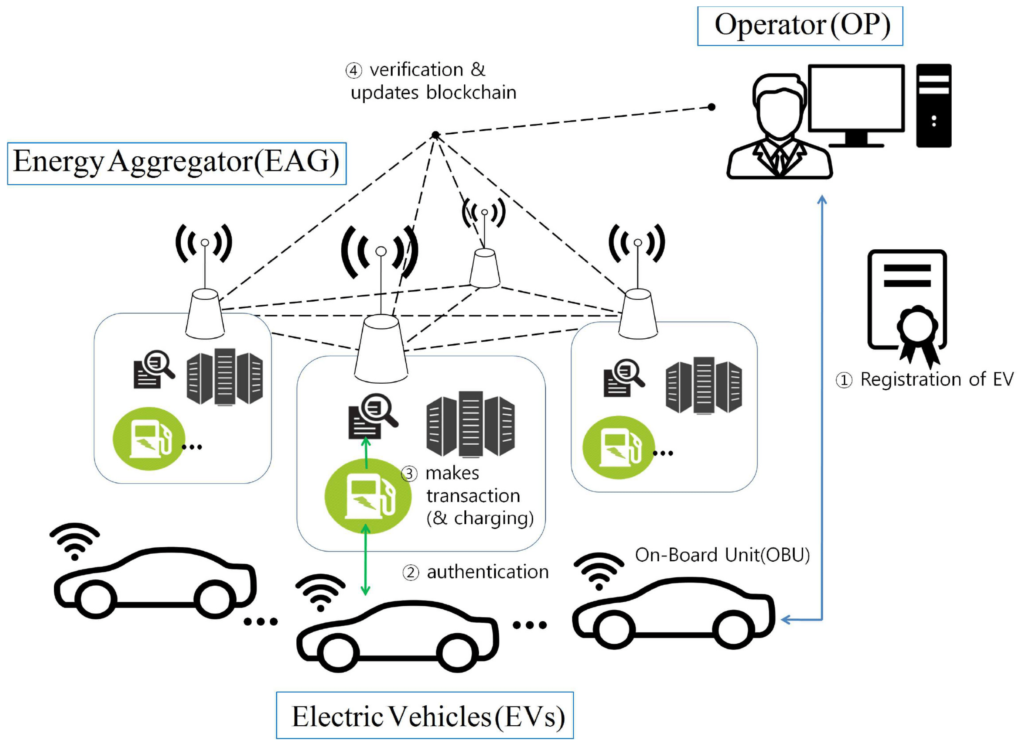
This image is property of pub.mdpi-res.com.
What is Blockchain Technology?
Blockchain technology is a decentralized, distributed ledger system that securely records transactions across a network of computers. Each transaction is verified by the network participants, or nodes, before being added to a block. These blocks are then linked together in a chain, creating a transparent and immutable record of all transactions. This technology eliminates the need for a central authority, making transactions more secure and efficient.
The Benefits of Blockchain Technology in Electric Vehicle Ecosystems
Now that you have a basic understanding of blockchain technology, let’s explore the benefits it brings to electric vehicle ecosystems. Blockchain technology offers several key advantages that are transforming the industry:
-
Enhanced Security: Blockchain technology provides a high level of security by encrypting transaction data and distributing it across a network of nodes. This makes it virtually impossible for hackers to tamper with the data, ensuring the integrity of electric vehicle transactions.
-
Increased Transparency: Blockchain technology creates a transparent and immutable record of all transactions, allowing stakeholders to track and verify the origin of energy sources, vehicle usage, and charging patterns. This transparency builds trust among participants in the electric vehicle ecosystem.
-
Reduced Costs: By eliminating the need for intermediaries and streamlining transactions, blockchain technology reduces costs associated with electric vehicle operations and maintenance. This cost savings can be passed on to consumers, making electric vehicles more affordable and accessible.
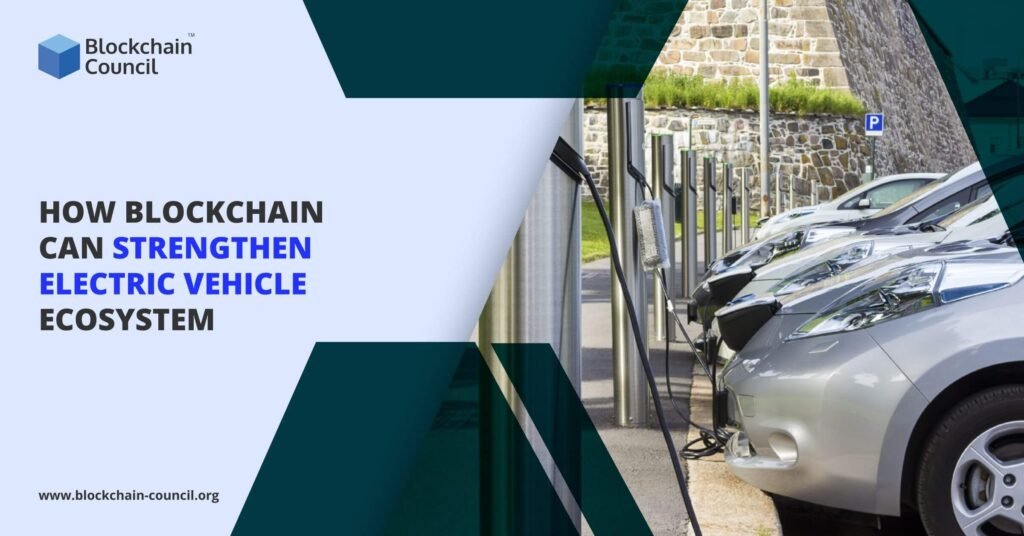
This image is property of www.blockchain-council.org.
Blockchain Applications in Electric Vehicle Ecosystems
Now that you understand the benefits of blockchain technology, let’s explore its applications in electric vehicle ecosystems. Blockchain technology is being utilized in various ways to enhance the efficiency and sustainability of electric vehicles:
| Application | Description |
|---|---|
| Smart Charging | Blockchain-enabled smart charging systems enable real-time monitoring and optimization of electric vehicle charging. This helps balance energy supply and demand, reduce grid congestion, and minimize charging costs. |
| Supply Chain Management | Blockchain technology is used to track the origin of key components in electric vehicles, such as batteries and motors. This transparency ensures ethical sourcing, reduces environmental impact, and improves the overall sustainability of electric vehicle production. |
| Vehicle-to-Grid (V2G) | Blockchain technology facilitates vehicle-to-grid (V2G) transactions, allowing electric vehicles to store and sell excess energy back to the grid. This not only helps stabilize the grid during peak demand but also generates revenue for electric vehicle owners. |
| Peer-to-Peer Energy Trading | Blockchain enables peer-to-peer energy trading among electric vehicle owners, allowing them to buy and sell excess energy directly to each other. This decentralized energy marketplace promotes energy independence, reduces reliance on traditional utilities, and incentivizes renewable energy consumption. |
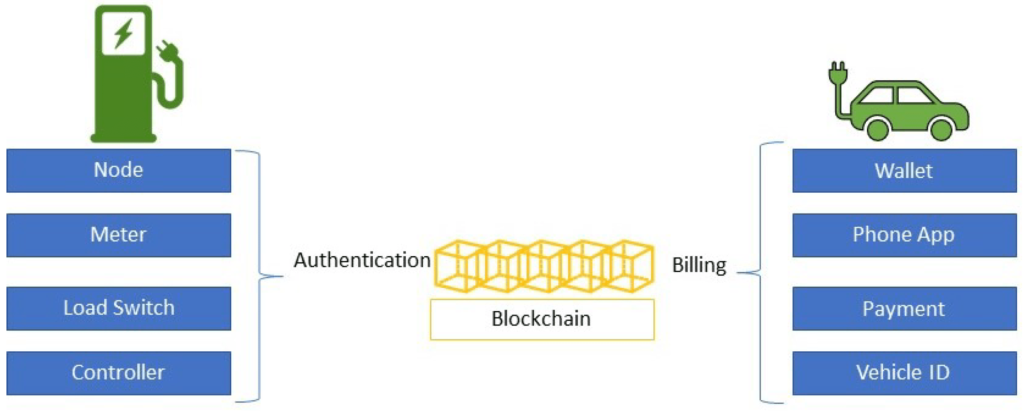
This image is property of pub.mdpi-res.com.
Challenges and Considerations
While the potential of blockchain technology in electric vehicle ecosystems is vast, there are several challenges and considerations that need to be addressed:
-
Scalability: As the number of electric vehicles and transactions increases, blockchain networks may face scalability issues. To support the growing demand, developers need to find innovative solutions to improve network throughput and transaction speed.
-
Regulatory Compliance: The integration of blockchain technology in electric vehicle ecosystems raises questions about regulatory compliance, data privacy, and cybersecurity. Governments and industry stakeholders must work together to establish clear regulations and standards to protect users and ensure data security.
-
Interoperability: To maximize the benefits of blockchain technology, interoperability between different blockchain platforms is essential. Standardized protocols and communication channels are needed to facilitate seamless data exchange and collaboration among various stakeholders in the electric vehicle ecosystem.
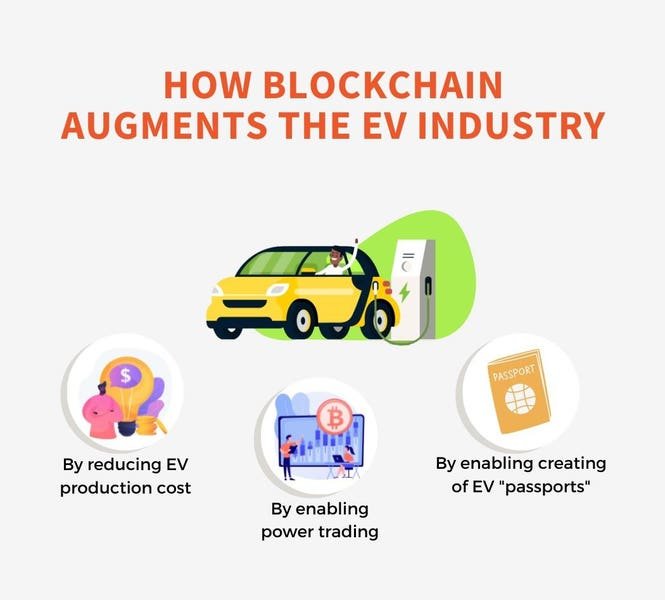
This image is property of imageio.forbes.com.
Future Outlook
Looking ahead, the future of blockchain technology in electric vehicle ecosystems is bright. Innovations in blockchain technology, such as the development of energy-efficient consensus algorithms and privacy-enhancing features, are poised to revolutionize the electric vehicle industry. With ongoing research and collaborative efforts, blockchain technology has the potential to drive sustainable growth, promote clean energy adoption, and create a more efficient and interconnected electric vehicle ecosystem.
In conclusion, the role of blockchain technology in electric vehicle ecosystems is transformative. By enhancing security, transparency, and efficiency, blockchain technology is paving the way for a cleaner, greener, and more sustainable transportation future. So, next time you plug in your electric vehicle, remember the powerful impact of blockchain technology behind the scenes.
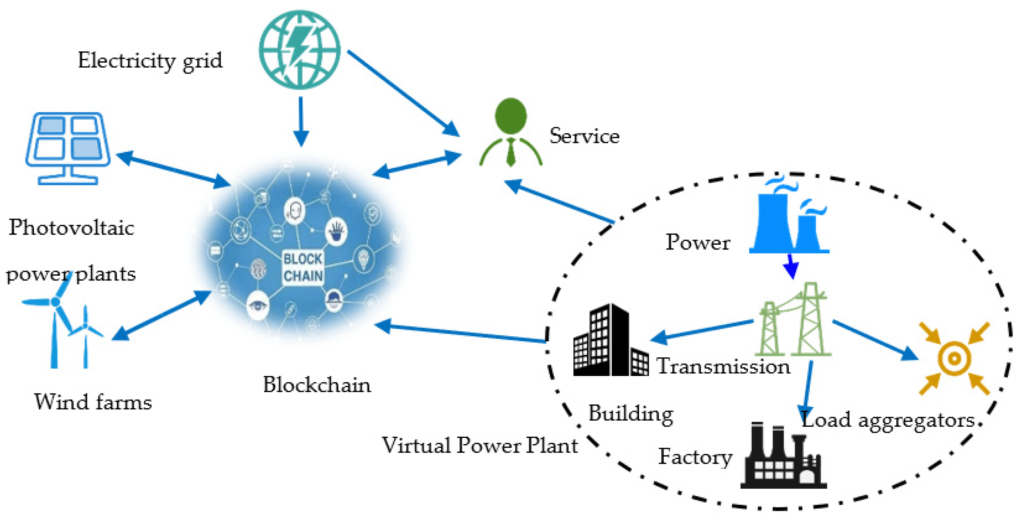
This image is property of pub.mdpi-res.com.

